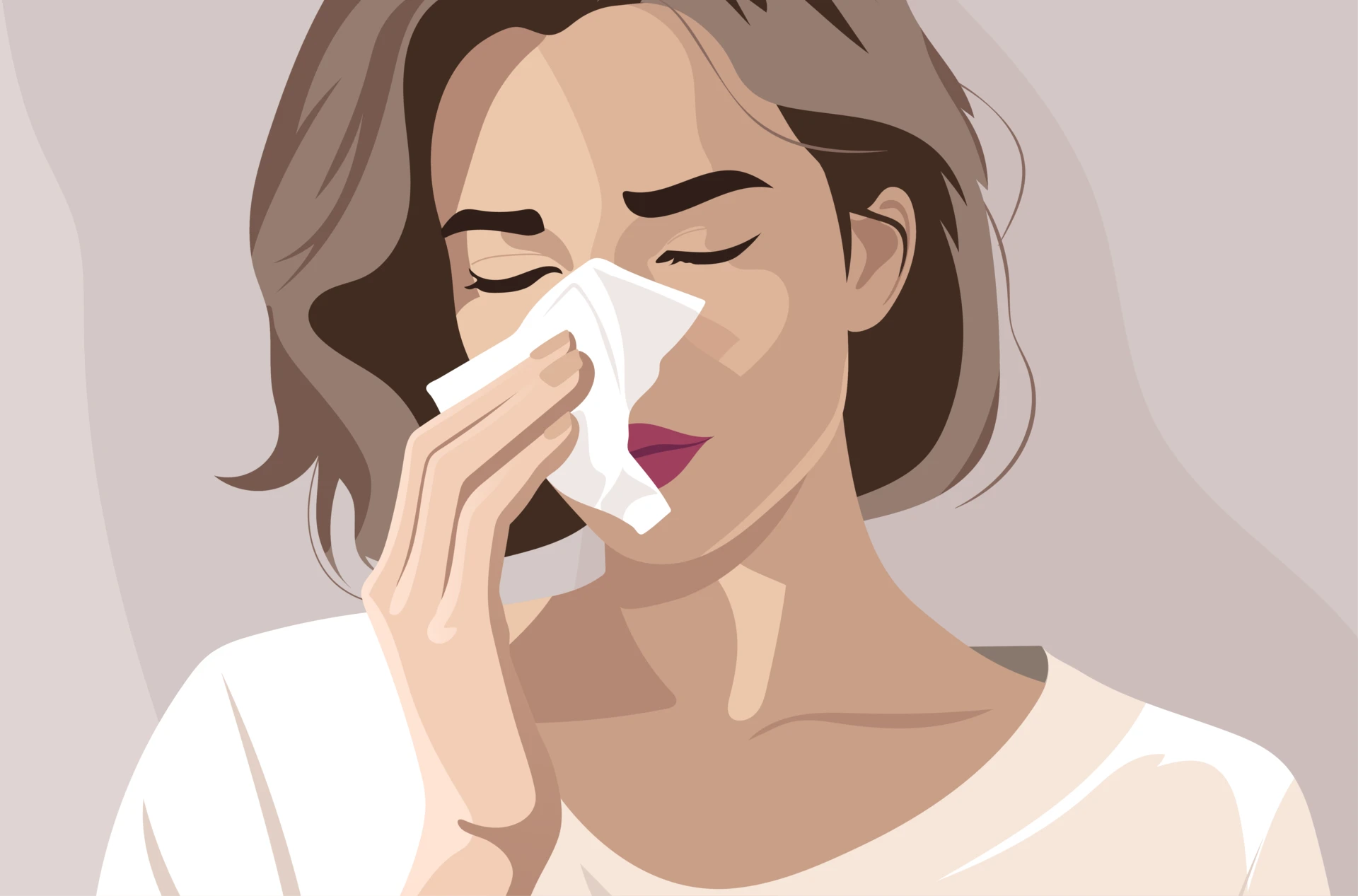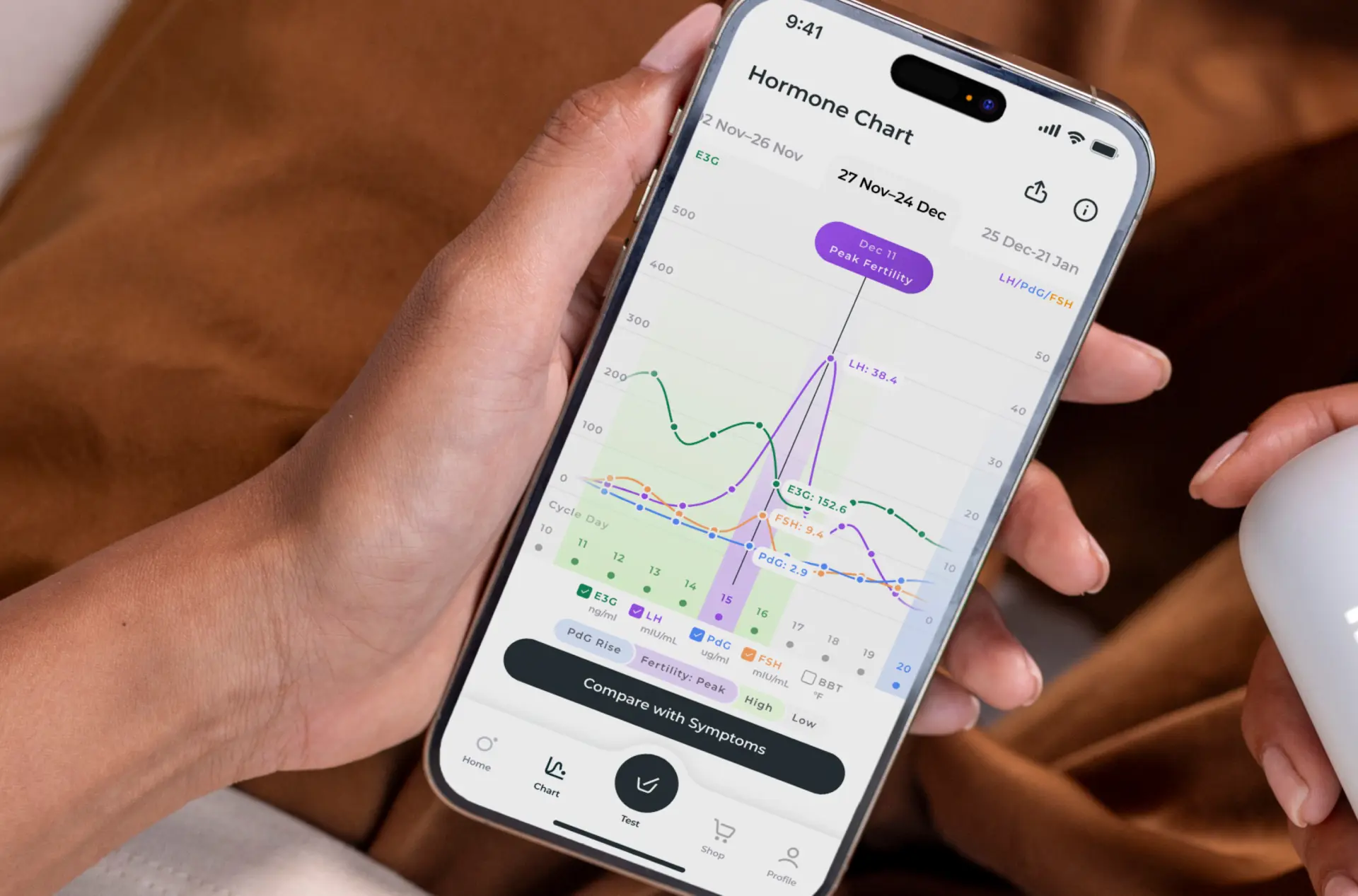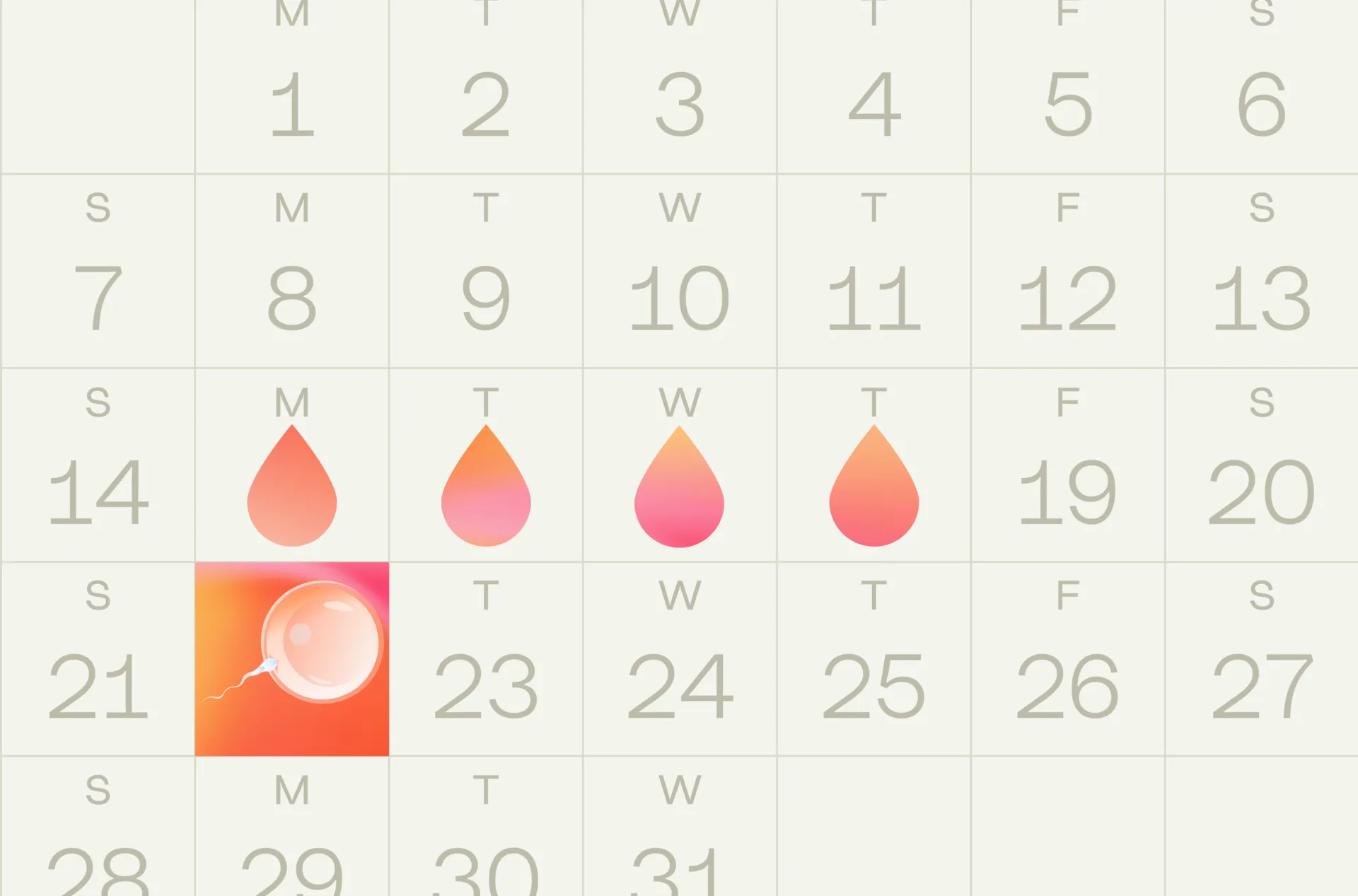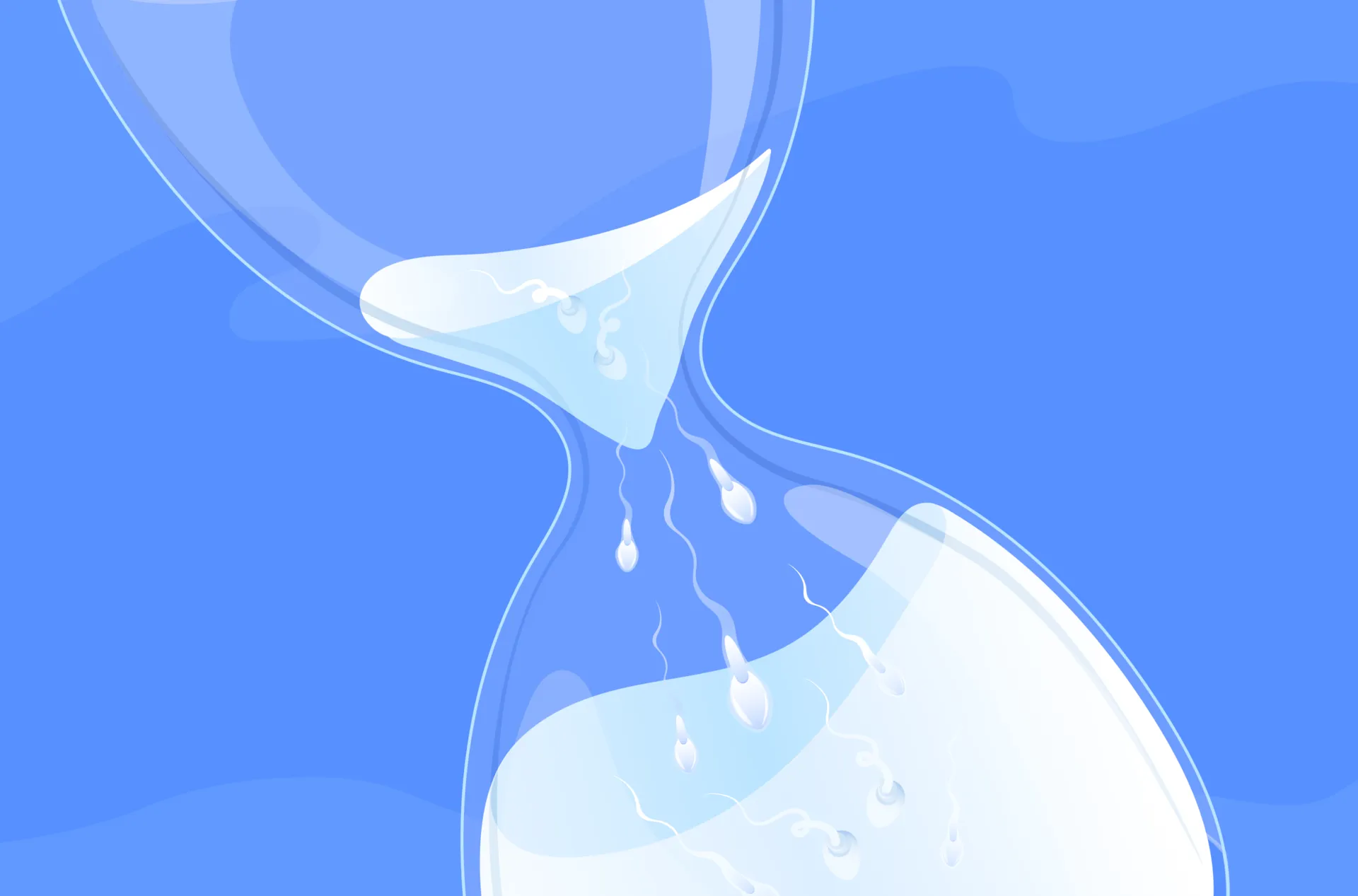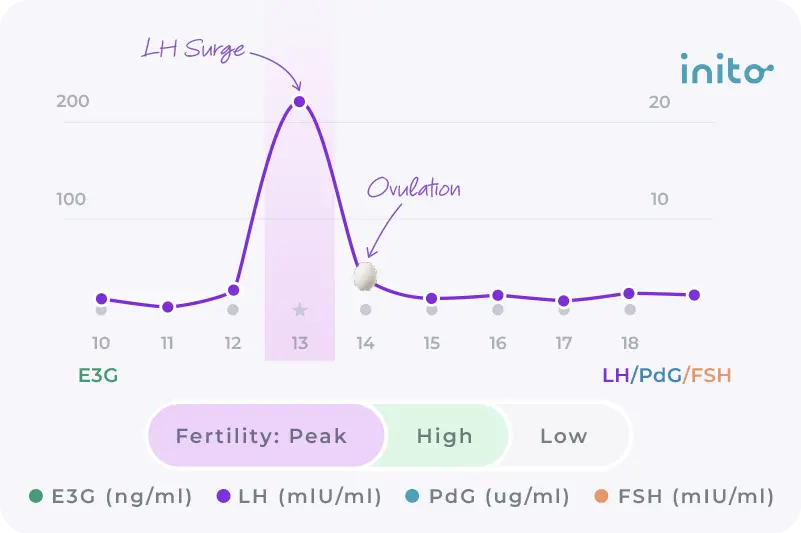Content table
Have you ever had a week before your period when you feel completely wiped out? Like you’re coming down with something?
Maybe you have a headache. Maybe you’re feeling nauseous before your period. Or even some aches and chills.
Sounds like the flu, right?
You’re not alone. This feeling of being sick right before your menstrual period is so common that it has its own name: The Period Flu.
What is the period flu?
While it’s not an official medical diagnosis, the name makes sense because the symptoms are so similar to the actual flu or a common cold.
Period flu symptoms are usually part of a larger group of issues doctors call premenstrual syndrome (PMS).
About 75% of women experience some type of these PMS symptoms during the second half of their menstrual cycle.
Understanding the difference between the period flu and actual flu can bring you peace of mind. We’re here to give you the low-down on the causes of the period flu and how to manage it.
Key Takeaways
- Period flu is a term for flu-like symptoms before your period.
- The main causes of period flu are hormonal changes and the release of prostaglandins. These are natural chemicals that can cause inflammation.
- Period flu symptoms often include a fever before your period, chills during your period, nausea before your period, and body aches.
- Symptoms usually last for a few days and get better once your period starts.
- You can manage symptoms with simple treatments like heat therapy, nonsteroidal anti-inflammatory drugs, and a healthy lifestyle.
What Is the Period Flu? How Is It Different From the Regular Flu?
The period flu is a term for the flu-like symptoms that some women experience right before their menstrual period.
You might feel symptoms such as:
- Sore throat
- Fever
- A feeling of being unwell
- Tiredness
So, how’s it different from the other type of flu?
Here’s the biggest difference: period flu symptoms come as a result of your own hormonal changes, not a virus. So it is not contagious, meaning you can’t catch it from someone else, and you can’t pass it on. It is directly tied to your menstrual cycle and usually goes away once your period begins.
The “flu” (influenza) is a highly contagious infection caused by a virus.
It can happen at any time of the year and brings symptoms like fever, sore throat, cough, and intense fatigue.
What Causes the Period Flu?
The exact causes of this flu are still a mystery. But doctors believe it’s mainly due to hormonal fluctuations and a chemical called prostaglandin.
Let’s dive in deeper.
Hormonal shifts
During your menstrual cycle, your hormone levels go up and down.
After ovulation, estrogen levels drop and progesterone levels rise. These hormonal changes don’t just affect your reproductive system. They can cause various physiological changes throughout your whole body.
Here’s an example.
Do you often feel bloated before your period? You have your hormones to thank.
High progesterone levels can affect your digestive system and cause nausea before your period, and digestive problems like bloating or gas.
Progesterone can also cause you to retain fluid, which can lead to swelling and a feeling of heaviness.
It can even make the ligaments in your back a little loose and cause back pain.
This is why you often hear women say, “My period makes me feel sick and tired.” It’s not just in your head! These hormonal fluctuations are very real and powerful. And they can affect your immune system, making you feel more run-down and sensitive to aches and pains.
Know more: Luteal Phase: All the Science, Simplified
Excessive prostaglandins
Prostaglandins are natural chemicals your body makes, including in your uterine lining.
Right before your period, your body produces these to help the uterus contract and shed its lining.
But when you have too many prostaglandins? They can cause an inflammatory response throughout your body.
This can lead to flu-like symptoms such as:
- Low-grade fever
- Chills during period
- Muscle aches
This inflammatory response is also the main reason for menstrual cramps and period pain.
Increased stress
Studies show that high stress levels can increase sympathetic activity in your body. The result? Your uterine contractions become more intense and can cause severe menstrual pain.
Know more: Stress and Fertility: Is It Actually Hurting Your Chances?
Symptoms of Period Flu
The symptoms of period flu and premenstrual syndrome often overlap.
But there’s something that makes the period flu different from general PMS. And that’s that it describes more of the physical period symptoms. Premenstrual syndrome, on the other hand, often focuses on mood swings and emotional changes.
Period flu symptoms are also cyclical. They tend to come around the same time in each cycle — right before your period starts. And they get better once your period shows up.
Common flu symptoms due to your period can include:
- Abdominal cramps
- Period pain
- Body aches
- Joint pain
- Muscle pain
- Feeling achy
- Low-grade fever
- Chills
- Headaches
- Breast tenderness
- Nausea
- Digestive problems
- Skin breakouts
- Food cravings
- Feeling tired
- Sleep disruptions
Wondering if you’re experiencing the period flu and want a way to keep track of your symptoms? Use the free Inito app. This allows you to track 20+ symptoms and see patterns so you know what to expect each cycle. What’s more, the app syncs with the Inito Fertility Monitor, which measures 4 key fertility hormones in your urine to track and confirm ovulation, on a single test strip.
How Long Can a Period Flu Last?
This type of flu generally starts right after ovulation, which is about two weeks before your period. And it lasts until you get your period.
For some people, the symptoms might only show up for a few days right before your menstrual period. But for others, it can be a week or more.
So that means you’re looking at up to two weeks.
We know that’s less than ideal, but there’s good news! Symptoms usually improve once bleeding begins.
How Can You Manage Period Flu Symptoms?
While you can’t cure the period flu, you can definitely manage it!
You have a lot of options to relieve period flu symptoms and feel better, so let’s take a look:
Pain relief
- Over-the-counter medications: Taking pain relievers like nonsteroidal anti-inflammatory drugs (NSAIDs) can help relieve pain and reduce inflammation.
- These include ibuprofen and naproxen. They can block the body’s production of prostaglandins, which helps ease cramps and body aches.
- Heat therapy: A hot water bottle or heating pad on your lower belly or back can help relieve pain from menstrual cramps and muscle tension.
Healthy lifestyle habits
Exercise: Gentle, moderate-intensity exercises like walking, swimming, or yoga can help relieve pain, reduce stress, and improve your mood and energy.
Diet: Eating smaller, more frequent meals can help with digestive problems and nausea. Also, avoiding caffeine and salty foods can help with bloating and water retention.
Learn more: Best Foods to Eat During the Luteal Phase
- Good sleep: Getting enough sleep is super important when you feel like this. Sleep disruptions are a common symptom, so prioritize getting to bed early. A good night’s rest can do wonders for both your physical and mental health.
- Relaxation techniques: Managing stress is key. Meditation or deep breathing can help ease pain and make you feel more calm and relaxed.
When To See a Doctor?
You should talk to a healthcare provider if you experience:
- Severe pain that doesn’t go away with over-the-counter-medications
- A fever that is higher than a low-grade fever or that doesn’t go away once your period starts
- Bad period symptoms that are getting worse with each menstrual cycle
- Symptoms that are so severe they interfere with your ability to do things in everyday life
You may be given the option of hormonal contraceptives, like birth control pills, to help ease these symptoms. These help stabilize hormonal fluctuations and reduce the severity of symptoms.
Additionaly, about 3-8% of women suffer from severe symptoms that interfere with their daily activities. This is often called premenstrual dysphoric disorder (PMDD). And it’s a severe form of PMS that can cause intense mood changes and severe depression.
Your doctor can help you find the cause and the best period flu treatment for you.

FAQs
Feeling cold or getting chills during your period is a common symptom of the period flu.
This is because your body’s temperature can change during your menstrual cycle, especially with the shifts in hormone levels.
The release of prostaglandins can also cause your body to have a low-grade inflammatory response. And this can feel a lot like the flu.
Some women in perimenopause may experience period flu symptoms that are even more intense.
This is because hormonal fluctuations can be more extreme during this time.
The symptoms might be less predictable. But things like nausea before your period, body aches, and fatigue are still common.
Yes! Getting sick can sometimes affect your menstrual cycle.
A severe illness like the flu can put a lot of stress on your body, and this affects the hormones that control your period.
So, if you have the flu, it’s possible the illness could delay your period for a few days or even a week!
The flu might delay your period for a few days up to a week.
The stress that a serious illness places on your body can affect the hormones that regulate your cycle. It’s almost like your body focuses all its energy on getting you through the flu, so other functions, like your period are put on pause.
Once your body has recovered from the flu, your period should return to its normal schedule.
Yes, stress can definitely make period flu symptoms worse.
When you’re stressed, your body produces more cortisol. High cortisol levels can affect your hormone levels and how your body handles inflammation. This can make things like menstrual camps, body aches, and fatigue more intense.
This is why managing stress with things like relaxation and exercise is a key part of managing the flu.
Many women find that hormonal birth control helps manage and even prevent period flu symptoms.
The hormones in birth control pills or other hormonal contraceptives can help stabilize your natural hormonal fluctuations. This can reduce the severity of mood swings, bloating, and headaches.
Yes. What you eat can have a big impact on how you feel. An anti-inflammatory diet can help relieve symptoms.
Foods high in salt, sugar, and caffeine can make things like bloating, headaches, and mood swings worse.
Making small changes to your diet, along with other healthy lifestyle habits, can be a great way to manage symptoms and feel better.
It is not uncommon to have a low-grade fever during your period. This is a sign of your body’s inflammatory response to the prostaglandins that cause menstrual pain.
A low-grade fever is a temperature below 100°F.
If you have a high fever that isn’t going away, you should talk to your doctor to make sure it’s not a sign of an infection.



